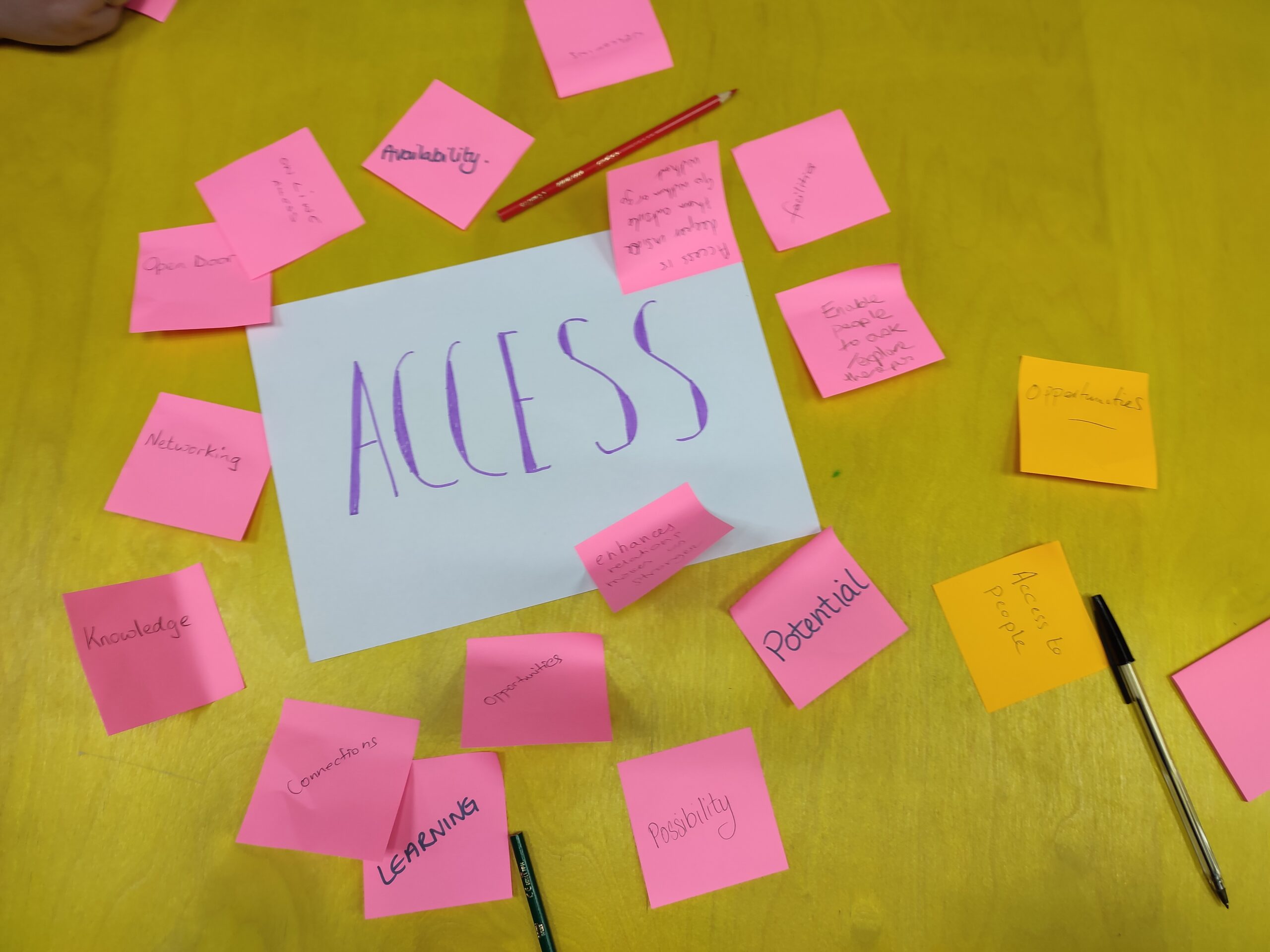Workshop 1: Beginnings

Words of Kindness
In our first workshop one of our members offered to lead an activity at the beginning of the session in which we were invited to write ‘words of kindness’ and place them in a bowl nearby to us.
At the end of the workshop each of us took some ‘words of kindness’, read it aloud and kept it with us. This created a space of care – as well as and after-care. This was a new activity being tested and, unexpectedly and organically, we all agreed that it should become a tradition every time we meet.
Evaluation becomes data collection
In this initial workshop we planned to ask some evaluation questions, that would be repeated at the end of the project.
However, the interest and incredible responses from the group meant that the answers went beyond evaluation. In fact, they furthered our research and became data in and of themselves. In these responses, people shared deep wisdom, rigorous knowledge and personal experiences.
These were the questions that we discussed together
- What do you think when we say the word ‘knowledge’?
- What do you think when we say the word ‘data’?
- Who do you trust with data about your mental health? Who don’t you trust?
- How do you feel about considering your knowledge, expertise and experience as valid research?
[Watch this blog for a future write-up]
People were very generous with their answers and listening to one another, which. Which sparked more vulnerable and off-the-record sharing. More time than expected was needed to let the richness of the answers be spoken, and to express the emotions and safely come back to a place of less intensity before the workshop finished.
In this workshop, we did not go on to develop our research focus and methodology to work with the public as planned. Instead, we generated valuable and sensitive data sooner than expected and an incredible foundation for collective working in this field.
Continued communication
We decided to create a WhatsApp group and come together for another workshop to continue our process.
In the meantime, some of us met with some of the researchers for lunch to get to know each other, exchange questions about each other’s work and bridge conversations with the whole working group. The researchers also recorded their own answer to the question ‘What do you think when we say the word ‘knowledge’?
Data sharing
After the workshop, we reflected on the data that had been generated in the first workshop. Although it had been stated that the content would be shared, the sensitive content and the generous wisdom shared had transformed the nature of the data in a way that it felt important to revisit the question of ‘if’ and ‘how’ it should be shared? How would we retain the individual and collective autonomy over our words? (At this stage nothing had been shared outside of the group who were in the room when the words were spoken).
(See also our blog post on Data Sharing)
Related Blog Posts:
Workshop 2: Generating Questions



